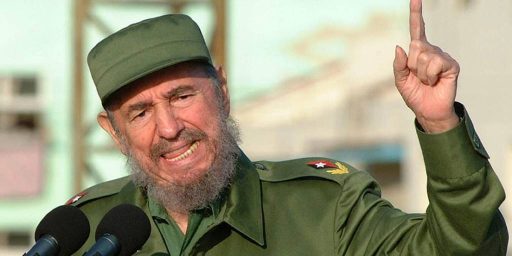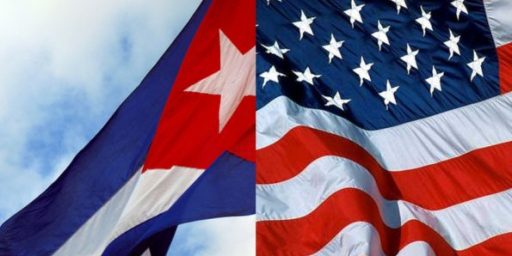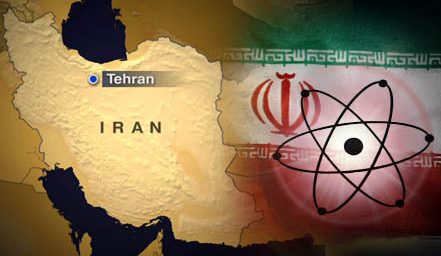Iran’s Nuclear Bomb: Acquiesce or Attack?
Graham Allison has made a career out of his 1973 book studying crisis decision-making during the Cuban Missile Crisis. Perhaps it isn’t surprising that his solution to Iran’s getting close to possession of nuclear weapons is to “take a page out of John F. Kennedy’s experience in the Cuban Missile Crisis of 1962.”
Some specifics would be nice.






Of course, you’ll have to buy Allson’s book, “Essence of Decision,” to know what he’s talking about.
Actually, having just read Allison’s piece you linked to, he did make a recommendation. Now, whether you accept his position is another thing. But he did make a case for a third course.
Allison likes so much his old book that he still recommends it. His article on Iran starts with the false premise that Iran is winner of the Iraq war whatever the result of this war, and then he concludes with this recommendation:
“If Iran is to be prevented from building nuclear bombs without war, the US must now explore negotiating options that are unpalatable but nonetheless better than the options a President will face at the end of the road he is now on.”
I don’t know in which planet Allison has been reading again his old book, but he should know that for the past several years the US has been exploring negotiating options jointly with EU governments.
DCL,
As far as I can tell, this is the entirety of Allison’s plan:
I agree as far as it goes. But that’s not very far!
“take a page out of John F. Kennedy’s experience in the Cuban Missile Crisis of 1962.â€
And of course this is a very useful suggesstion, especially when you are in the smallest room of your house and no other paper is available.
While I’m no more certain of what the heck Mr. Allison means than James is, I think that it might be worthwhile to consider what Kennedy actually did during the Cuban Missile Crisis.
My recollection is that his actions had two basic components. First, there was the public diplomacy component. Kennedy revealed the information we had about missile deployment in Cuba to the public.
The second component was the threat. Kennedy made some pretty tough threats.
Based on that one might suppose that Allison is suggesting that the Bush Administration should be forthcoming with whatever information it has at its disposal on Iranian nuclear weapons development. This won’t be as effective as it might be because of the Administration’s reputation for grooming intelligence (earned or not) and the relentless opposition of the press.
The other component would, presumably, be more explicit threats than the oblique statements that have been made to date.
Great idea! First, we use our navy to surround Cuba. Second … oh, hell.